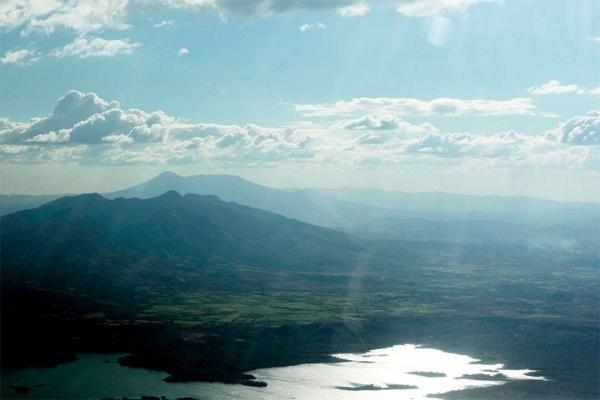World Mountain Forum Calls for Action on Climate, SDGs

The 2016 World Mountain Forum (WMF) provided a platform to discuss sustainable mountain development (SMD) in the context of the Paris Agreement on climate change and the Sustainable Development Goals (SDGs). The WMF 2016 resulted in a Mbale Call for Scaling Up Action, themed ‘Don’t leave the mountains behind,’ which is expected to galvanize work on the ground and guide mountain-related interventions in international policy processes, including implementation of the Paris Agreement and the SDGs.
Over 250 participants attended the WMF, which took place from 17-20 October 2016, in Mbale, Uganda, under the theme ‘Mountains for our Future.’ The Forum was preceded by A Special Africa Mountains Event, which highlighted key issues affecting mountain ecosystems and communities in Africa, including poverty, climate change, food insecurity and land degradation.
The Forum convened sessions on four themes: mountains and climate change; mountain communities and livelihoods; mountain ecosystem services; and sustainable mountain agriculture. On mountains and climate change, participants addressed how to, inter alia: cope with extreme weather impacts; establish proactive early-warning systems; and strengthen indigenous mountain community voices at local, national and international levels. On mountain communities and livelihoods, participants observed that mountain regions “fare very badly” on top priority SDGs concerning ending poverty and hunger, and highlighted that mountain regions suffer a backlog in development, yet face increasing demands for their ecosystem goods and services, including water, minerals, biodiversity and scenic value for tourism.
On mountain ecosystem services, participants described various ecosystem functions, including regulatory and provisional ecosystem services, and called for payments for ecosystem services (PES) to reach local communities. On sustainable mountain agriculture, participants commented on the importance of: plant diversity in mountain agriculture due to the risks posed by climate change to monocultures; and strong institutions to maintaining traditional knowledge on agriculture in indigenous communities.
The Mbale Call for Scaling Up Action calls on governments, politicians, decision makers, development and multilateral agencies, financing institutes and mountain stakeholders to form policy, gather knowledge and take action on, inter alia: reaching the targets of the Paris Agreement and SDGs through specific attention to mountain regions; recognizing upstream and downstream links, especially with regards to mountain ecosystem services; and promoting the inclusion of mountains in international processes and negotiations.
The Call for Action further urges, inter alia: taking into account mountains in relevant national and sub-national strategy and planning tools, including the National Development Strategies, National Adaptation Plans (NAPs) and Nationally Determined Contributions (NDCs) to the Paris Agreement; concretizing the SDGs at the national level through defining specific national mountain targets with mountain peoples’ involvement; and supporting a dedicated chapter on mountains in the forthcoming Sixth Assessment Report (AR6) of the Intergovernmental Panel on Climate Change (IPCC) by mobilizing mountain scientists to be nominated through their respective national focal points.
The WMF was jointly organized by the Albertine Rift Conservation Society (ARCOS) and Uganda’s Ministry of Water and Environment with financial and technical support from the Swiss Agency for Development and Cooperation (SDC), the German Federal Ministry for the Environment, Nature Conservation and Nuclear Safety through the UN Environment Programme (UNEP), the UN Development Programme (UNDP), the Embassy of France, and partners involved in the SDC-funded Sustainable Mountain Development for Global Change (SMD4GC) programme, including Consortium for the Sustainable Development of the Andean Ecoregion (CONDESAN) from Latin America, the International Centre for Integrated Mountain Development (ICIMOD) from Asia, the University of Central Asia, the University of Bern and Foundation for the Sustainable Development of Mountain Regions (FDDM).
Four publications were launched during the Forum: ‘Uganda Sustainable Mountain Development Strategy,’ published by Uganda’s Ministry of Water and Environment; ‘Sustainable Mountain Development in East Africa in a Changing Climate,’ published by UNEP, GRID-Arendal, ARCOS and EAC; ‘Climate Change Adaptation Strategies – An Upstream-Downstream Perspective,’ published by SMD4GC Partners; and ‘Towards an Integrated Approach to Nutrition Security in the Hindu Kush Himalayan Region,’ published by ICIMOD.
Mountains are primarily addressed under SDG 15 (Protect, restore and promote sustainable use of terrestrial ecosystems, sustainably manage forests, combat desertification, and halt and reverse land degradation and halt biodiversity loss). Target 15.1 aims to, “by 2020, ensure the conservation, restoration and sustainable use of terrestrial and inland freshwater ecosystems and their services, in particular forests, wetlands, mountains and drylands, in line with obligations under international agreements.” Target 15. 4 aims to, “by 2030, ensure the conservation of mountain ecosystems, including their biodiversity, in order to enhance their capacity to provide benefits that are essential for sustainable development.”

Facebook comments